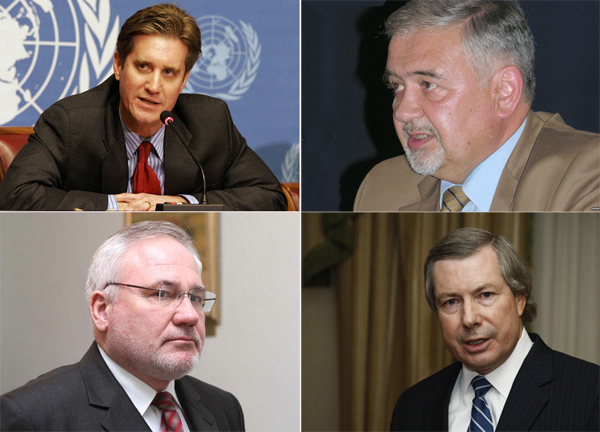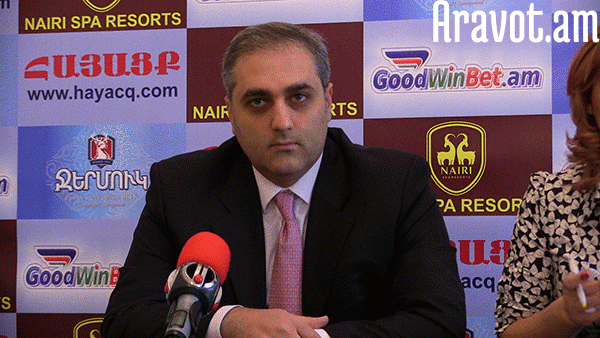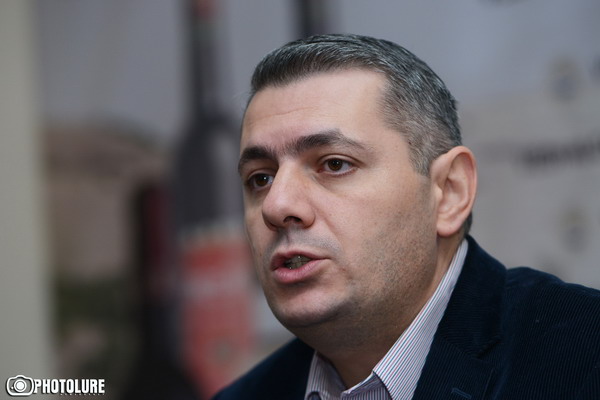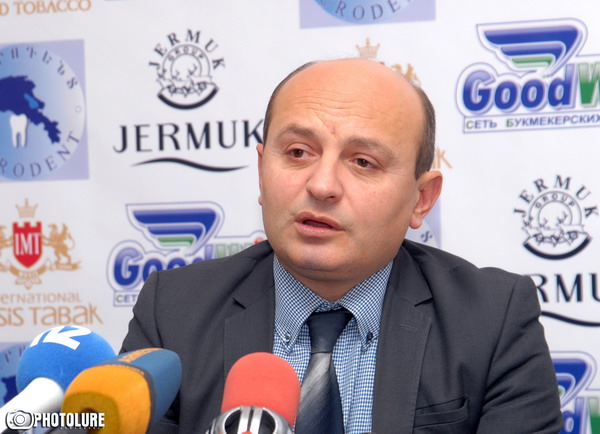NKR President’s spokesman David Babayan has made a remarkable reference to the last days’ several interpretations of the OSCE Minsk Group co-chair James Warlick, which raise a big fuss in Armenia. In the interview with 168.am, D. Babayan, in fact, agreed to the American co-chairs’ posture. “I understand Warlick’s approaches that the status is one of the priority tasks. We also say, a status and boundaries. In general, the Azerbaijani-Karabakh conflict settlement has two primary issue, all other issues are derivatives of these two problems. The major issues are the status and the boundaries. There is a short and fast way to conflict settlement. Azerbaijan recognizes the independence of Artsakh, we sit around the table of negotiations to discuss all other issues, be it political, military, humanitarian or other nature. Without Artsakh, the future of Artsakh cannot be resolved.”
The OSCE Minsk Group co-chairs are only mediators who have been expressed over 20-year history of the Karabakh settlement as much as the proposals and the principles laid on the negotiation table have allowed based on the necessity of publicity.
Prior to the Madrid principles, all the proposals for the settlement submitted by the mediators were published in the Armenian press. They were rejected, but today, some groups putting the American co-chair in the pillory and displaying activeness on the Internet can draw comparisons about what was discussed previously, and what particularly Warlick says today. As an example, let’s note that the “Common state” project during the tenure of Robert Kocharyan was submitted, negotiated and accepted by official Yerevan.
Prior to the Key West talks, a project elaborated by the OSCE Minsk Group was put into the circulation in the press, according to which Karabakh de facto was obtaining a status of independence by entering into a confederation with Azerbaijan. According to this document, Karabakh is having its own Constitution, armed forces and the right to veto any law passed by the Baku government, but Karabakh is recognized as a republic in the composition of Azerbaijan Confederation.
Read also
Of course, the co-chairs were different in their activities. For example, the former US co-chair Matthew Bryza was mostly communicating with Azerbaijan press, he was giving interviews, prior to all visits to the region, any of his interpretation was appearing on one or several Azerbaijani sites.
Unlike today’s Russian co-chair Igor Popov, who does not communicate with the media at all, the former Russian Co-chair Yuri Merzlyakov not very often but sometimes was coming up with interpretations.
We can even recall and compare the statements of the “former ones” to make the philosophy of the settlement clearer. In May 2005, the OSCE Minsk Group Russian Co-Chair Yuri Merzlyakov, in response to Azerbaijan’s Foreign Minister Elmar Mammadyarov’s statement that the Armenian side is ready to return 7 occupied territories, noted, “The fact that the occupied territories must be returned is known a few years ago.” In December 2005, the same Merzlyakov, in his interview with Azerbaijani ATV TV channel, noted that during the Karabakh conflict settlement, Azerbaijan’s territorial integrity will be preserved. “Now, it’s early to speak about the final agreements, but I can clearly say that the Azerbaijan’s territorial integrity will be preserved.”
In May 2009, in his interview with «Эхо Москвы» (Eco of Moscow), the US Assistant Secretary of State, also the OSCE Minsk Group US Co-chair Matthew Bryza said, “What comes to Karabakh and the other territories, then they step by step will be returned to Azerbaijan together with the refugees. However, in Moscow, Azerbaijani President Aliyev stated that, first and foremost, there should be a corridor linking Armenia and Nagorno-Karabakh. This is a big step forward. Aliyev also spoke about the right of the Karabakh people to autonomy. He is preparing his nation to pretty tough concessions.” To the question of whether the American political figure divides the discussions available during the talks between Karabakh and the areas surrounding thereof, Bryza replied, “Such negotiations are underway and are the important part of our negotiations. I think that eventually the territories will be returned, and the refugees from Azerbaijan will return to these territories. Now, I cannot say what will happen to Karabakh. We know that a new status will be given to Karabakh. As to what status it will be, it is difficult to tell now.”
What does the US Co-Chair James Warlick say today? “There can be no comprehensive settlement to Nagorno-Karabakh conflict if it does not contain the issue of the status of Nagorno-Karabakh,” Warlick said recently in Yerevan, adding that the comprehensive settlement “also includes the issue of the status, and there will need to be a free expression of the will of the population of Nagorno-Karabakh as part of this comprehensive settlement.” And one of the elements of the comprehensive settlement, according to Warlick, should be the return of the territories surrounding Nagorno-Karabakh. “This is one of the aspects and an element of the negotiations”.
Then Warlick emphasizes that the voice of the authorities of Stepanakert need to be heard as part of any comprehensive settlement. “The status of Nagorno-Karabakh should also be in the center of a settlement to have a comprehensive settlement. Other issues too: the refugees and security guarantees, all these are elements of the comprehensive settlement.” The OSCE Minsk Group American co-chair also said that the dates for holding the possible referendum for determining the status of Nagorno-Karabakh and the possible deployment of peacekeepers need to be defined during the negotiations. And for conclusion, one more remarkable clarification by the current American co-chair, “It’s clear that Armenia does not plan to return territory without adequate security guarantees. Therefore, I have mentioned about the security guarantees, including of the international peacekeeping forces.”
“The devil is in the details,” but what was said in these 20 years by the Russian and US co-chairs, if desired, can be compared and made conclusions.
Emma GABRIELYAN, “Aravot” daily























































